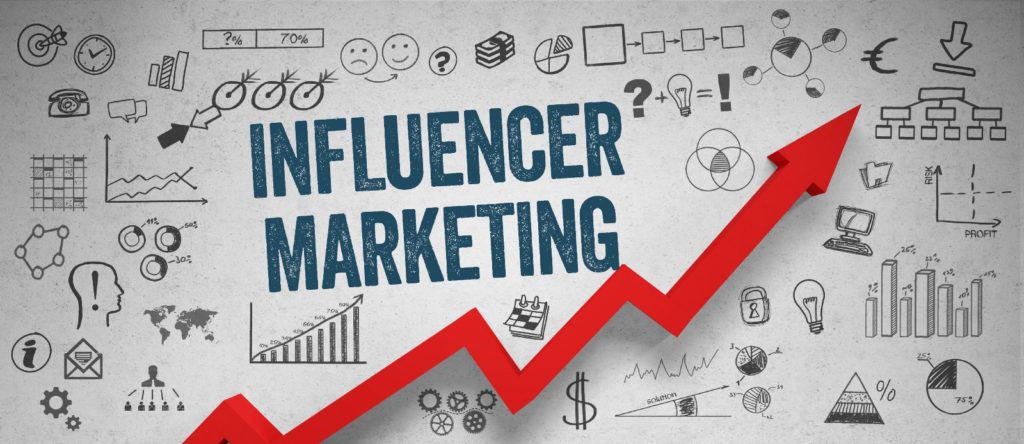
Influencer marketing is one of the fastest-growing segments of digital marketing. Love it or hate it, influencer marketing is here to stay.
In the early 2000s, influencer marketing was limited to a handful of prominent celebrities and dedicated media personalities who generated enough of a following to have an impact. Now, influencer marketing is one of the most controversial forms of peer to peer marketing that is redefining the way that companies and brands grow their business through social media.
Influencer marketing is arguably the most divisive form of P2P marketing. In this article, we’ll break down the science behind influencer marketing and how it continues to reshape the P2P marketing space.
What is Influencer Marketing?

Influencer marketing is a combination of new and old marketing tools. New technologies are being used to facilitate a more efficient transfer of information between influencers and followers (celebrities and fans) in a content-driven digital marketing campaign that aims to persuade opinion through influence.
In essence, companies and brands are collaborating with influencers or brand ambassadors who represent their target market and can push their product or service on their followers. The main point of difference between influencer marketing and regular P2P marketing is that the campaigns are devised in collaboration with brands and influencers.
Influencers Are Not Celebrities

Non-famous people who grew a massive following through social media platforms like Facebook, Twitter, Instagram, Snapchat or Tic Toc aren’t celebrities – they’re influencers. As influencers gain a legion of loyal followers who are looking to imitate their every move, they have the leverage to start asking companies for money to push their product or service to their audience.
While some celebrities are commanding up to $1 million per post or ‘shout out’, smaller brands needn’t be put off. Emerging companies and brands can employ the assistance of micro-influencers who have gained traction with a smaller audience or a smaller niche.
Influencers Are Eroding Brand Trust

With so many influencers pushing so many products, there was always going to be some casualties along the way. Importantly, one of the biggest casualties from the era of influencers in P2P marketing has been the erosion of brand trust. Audiences are interested in an authentic endorsement, not just a sales pitch. As a result, influencers are causing followers to scrutinize the authenticity of an endorsement.
Peer-to-peer marketing is built on the idea that products or brands can be built through impartial recommendations. Social media has monopolized the P2P marketing sector and eroded the trust between the endorser and the endorsee in the P2P marketing relationship. Audiences are now more aware of being ‘marketed to’ rather than being given a recommendation based on an impartial, honest connection between an individual and a business.
Authenticity Builds Trust

Influencers have a community of followers or fans who trust and value their opinions and choices. As such, influencer audiences are more likely to recall brand content and form a deeper connection with a brand based on an endorsement by someone that they trust and are familiar with.
Influencers allow brands to handpick a team of brand ambassadors who can persuade a highly engaged audience and create a brand identity that can form the basis of ongoing marketing partnerships. This unique P2P or I2A (Influencer to Audience) relationship provides brands with a platform to collaborate and build meaningful relationships with an audience who feel a strong affinity and loyalty to the person who is endorsing their product – the influencer.
Working with influencers that accurately reflect brand values and ideals is essential when working with influencers. It’s not enough to for brands to work with an influencer based on their engagement metrics or the size of their following, it is important that the influencer is the right fit for the brand. There are a number of agency style platforms that have been designed specifically for pairing influencers with brands.
Challenges Facing Influencer Marketing

Despite the increased awareness and spend on influencer marketing, there is still a long way to go in understanding its true impact. Brands and agencies who work with influencers face an uphill battle to determine the effectiveness of campaigns due to a lack of transparent reporting tools. Understandably, brands who work with influencers or ambassadors want to understand the return on investment.
Social media platforms like Instagram changing the way that they measure engagement by removing likes, views, and shares intermittently as they redefine their platform only make it more difficult for brands to measure the effectiveness of a post or campaign. There has been a fundamental change in the way that brands look at influencer metrics and the success of P2P marketing collaboration.
In the beginning, the most important metric was the number of likes or comments that a post received. And while these are still relevant metrics to show the impact of a campaign, there are other metrics that can be used to more accurately measure the success of a campaign.
Many brands find that using ‘coupon codes’ that are linked to an advertisement is a more effective way to measure the direct sales impact of influencer marketing. Affiliate links, coupon codes and purpose-built website landing pages with tracking codes are a simple, but effective way for brands to measure how many sales can be directly attributed to the exposure received in a post.
Conclusion

Influencer marketing is here to stay. Love it or hate it, increased access to social media and mobile-led engagement mean that the world of influencer marketing will only continue to grow and flourish.
Working with influencers to launch or market a brand requires a special set of considerations. Like most marketing campaigns, it’s important to research your target audience, identify your most effective channels, determine goals, find influencers in your space and review and revise your campaign goals along the way.
Success will vary greatly depending on the brand, niche, and target audience. In many cases, trial and error are the only avenues to understand how effective influencer marketing will be for launching a brand or product.














